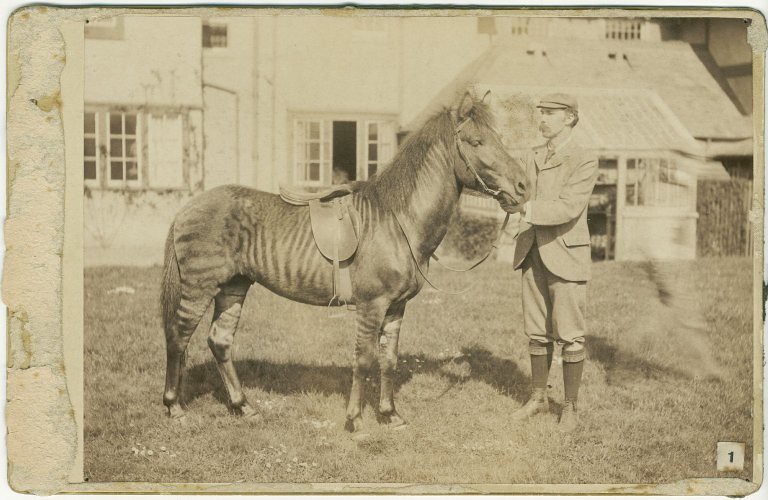Zebras may be the flashiest members of the equine family, but they’re surprisingly versatile when it comes to hybridization. Known collectively as zebroids, these hybrids result from breeding a zebra with another type of equine, most commonly horses, donkeys, or ponies.
Some of the most common combinations include:
- Zebra + Horse = Zorse
- Zebra + Donkey = Zonkey
- Zebra + Pony = Zony
The name of the hybrid can depend on the sex of the parents, though there doesn’t always seem to be strict enforcement of these rules. For example, a zonkey (or sometimes zeedonk) is generally a cross between a male zebra and a female donkey, whereas a donkra is usually a hybrid species bred from a male donkey and a female zebra.
Their appearance can vary depending on the combination of species. Some might look like a donkey with stripy legs, while others look like a horse that’s had a portion of zebra skin patchworked on its body.
These unusual pairings are known to occur naturally in the wild, but they have been observed in zoos and other controlled environments around the world, offering a rare glimpse into the genetic flexibility of the equine family.

A regular horse, a zebroid, and a zebra.
Image credit: Patrick Jakobsson/Shutterstock.com
On the taxonomic family tree, zebras belong to the family Equidae, which includes all species of horses, donkeys, and wild asses. This means they are relatively closely related and capable of interbreeding to create viable offspring.
You might have been taught at school that two different species cannot interbreed and create fertile offspring, but that’s not strictly true.
It’s accurate in some scenarios: horses and donkeys can interbreed to create hybrid offspring, known as mules, but they will be infertile and unable to reproduce themselves. In other scenarios, animals of different species can interbreed and create fertile offspring.
It often comes down to chromosomal compatibility. Dogs, wolves, coyotes, and jackals are different species, but they all possess 78 chromosomes arranged in 39 pairs, allowing them to successfully interbreed with fewer hitches.
However, equine species have varying numbers of chromosomes, despite being so closely related. As a result, most zebroid varieties are almost always infertile.

Black-and-white photograph of zoologist James Cossar Ewart (1851-1933) with a cross between a horse and a zebra, circa 1900.
There are always exceptions to the rule, though. In the 19th century, London Zoo reportedly had a “triple hybrid” that was the result of a female bay horse producing offspring with a male donkra (male donkey x female zebra hybrid). We know this thanks to none other than Charles Darwin.
In his 1868 book The Variation of Animals and Plants Under Domestication, he wrote: “Many years ago I saw in the Zoological Gardens a curious triple hybrid, from a bay mare, by a hybrid from a male ass and female zebra. This animal when old had hardly any stripes; but I was assured by the superintendent, that when young it had shoulder-stripes, and faint stripes on its flanks and legs. I mention this case more especially as an instance of the stripes being much plainer during youth than in old age.”
Whether this is accurate is not clear, but who are we to question the godfather of evolutionary theory?
Source Link: Zebroids, Zeedonks, Zorses, Zonies: Welcome To The World Of Zebra Hybrids